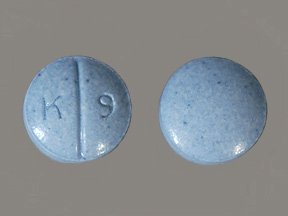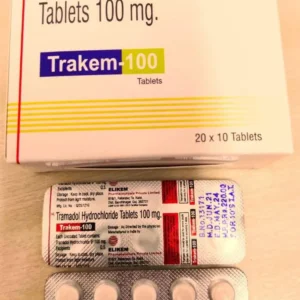Tramadol citra is a prescription medication used to relieve moderate to severe pain. It works by binding to opioid receptors in the brain and spinal cord to block pain signals from reaching the brain.
Tramadol citra is available in tablets, capsules, and oral solution. Tablets and capsules are usually taken every 4 to 6 hours as needed. Oral solution is usually taken every 4 to 6 hours or as directed by your doctor.
Need quick and effective pain relief? You may buy Tramadol online from us to manage moderate to severe pain with ease. Citra Tramadol 100mg is a trusted medication because it provides long-lasting relief. It makes a popular choice for people suffering from any pain or post-surgery discomfort.
Why Choose Citra Tramadol 100mg?
Helps relieve moderate to severe pain
Acts fast and provides long-lasting relief
Useful for chronic pain conditions
Safe and effective when used as prescribed
Type: Blister
Dosage: 100mg
We provide a greater quantity that is mentioned 90, 180, 360,540.
Tramadol for Sale Online
Looking for cheap Tramadol online? We provide a safe and reliable way to buy Citra Tramadol 100mg online without hassle. Whether you need Tramadol online USA or worldwide, we ensure fast delivery.
Benefits of Citra Tramadol (100mg Pink Pill):




Things to Consider:



Common side effects of tramadol citrate include:
- Drowsiness
- Dizziness
- Nausea
- Vomiting
- Constipation
- Sweating
- Dry mouth
- Headache
- Blurred vision
- Changes in mood or thinking
- Seizures
Serious side effects of tramadol citrate include:
- Respiratory depression
- Overdose
- Addiction
- Withdrawal symptoms
If you experience any serious side effects, stop taking tramadol citrate and call your doctor immediately.
Contraindications for tramadol citrate include:
- Allergy to tramadol or other opioids
- History of seizures
- Severe head injury
- Brain tumor
Drug interactions of tramadol citrate include:
- MAO inhibitors
- Antidepressants
- Sleeping pills
- Other opioid pain medications
If you are taking other medications, tell your doctor before taking tramadol citrate.
Special considerations when taking tramadol citrate include:
- Tramadol citrate can cause drowsiness and dizziness. Do not drive, operate machinery, or do other activities that require alertness until you know how tramadol citrate affects you.
- Tramadol citrate can be addictive. Do not take more than prescribed by your doctor. Do not share tramadol citrate with others.
- Tramadol citrate can interact with alcohol and other drugs. Talk to your doctor about all the medications you are taking, including over-the-counter medications and herbal supplements.
Store tramadol citrate at room temperature in a safe place where children cannot reach it.
For an easy and secure Tramadol purchase, buy Tramadol without prescription today and get fast relief from pain!








Reviews
There are no reviews yet.